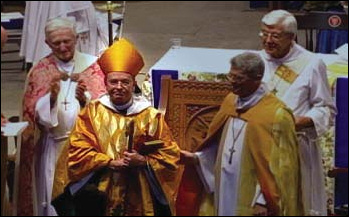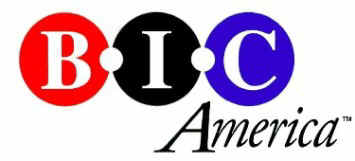A pair of fabulous documentaries have ZOOMED past here in Atlanta: JIMMY CARTER: MAN FROM PLAINS (dir. Jonathan Demme, US, 2007, 125 mins.) Director Jonathan Demme has created a very difficult piece to encapsulate, much less 'sell', which describes the dilemma that the subject of his documentary faces, also. The film concentrates on Jimmy Carter's publicity tour for his book, "Palestine: Peace Not Apartheid" by following him through the media circus that surrounded him for just using the word 'apartheid' in the same breath with 'Palestine'. The 'character' of Jimmy Carter is big enough and well known enough, that we don't need much more than a refresher on who he is before launching out on the road with him. What comes as sort of a bonus in seeing him in action, is that even at 82 years old AND being a former President, he still carries his own bags and flies on commercial airlines, with just the minimal of security around him. As for a 'warts and all' portraiture, Demme catches Carter being only annoyed at worst, and that is limited to the cell phone juggling he has to do from airplane to hotel, as well as dealing with interviewers who have obviously not read the book they are criticizing him for. By keeping any political lashing at the current administration out of the film, Demme has restrained it to an observation of an 'old generation' politician faced with current media frenzy that seeks a soundbite and not a discussion, even with a topic that is as complicated as the Israel-Palestine conflict. However, Carter and his publishers,
JIMMY CARTER: MAN FROM PLAINS (dir. Jonathan Demme, US, 2007, 125 mins.) Director Jonathan Demme has created a very difficult piece to encapsulate, much less 'sell', which describes the dilemma that the subject of his documentary faces, also. The film concentrates on Jimmy Carter's publicity tour for his book, "Palestine: Peace Not Apartheid" by following him through the media circus that surrounded him for just using the word 'apartheid' in the same breath with 'Palestine'. The 'character' of Jimmy Carter is big enough and well known enough, that we don't need much more than a refresher on who he is before launching out on the road with him. What comes as sort of a bonus in seeing him in action, is that even at 82 years old AND being a former President, he still carries his own bags and flies on commercial airlines, with just the minimal of security around him. As for a 'warts and all' portraiture, Demme catches Carter being only annoyed at worst, and that is limited to the cell phone juggling he has to do from airplane to hotel, as well as dealing with interviewers who have obviously not read the book they are criticizing him for. By keeping any political lashing at the current administration out of the film, Demme has restrained it to an observation of an 'old generation' politician faced with current media frenzy that seeks a soundbite and not a discussion, even with a topic that is as complicated as the Israel-Palestine conflict. However, Carter and his publishers,  Simon and Schuster, are more than aware that just using the word 'apartheid' in the title was a publicity stunt in itself, though the word that everyone involved uses is 'provocative'. It is something that as the six week tour continues, Carter seemingly regrets having done. Though he admits that it was his way of sparking a debate on the subject, the result of having to defend himself proved to be a distraction from the topic at hand. And it is that unspoken drama Demme captures in the film.
Simon and Schuster, are more than aware that just using the word 'apartheid' in the title was a publicity stunt in itself, though the word that everyone involved uses is 'provocative'. It is something that as the six week tour continues, Carter seemingly regrets having done. Though he admits that it was his way of sparking a debate on the subject, the result of having to defend himself proved to be a distraction from the topic at hand. And it is that unspoken drama Demme captures in the film.
In short, and what makes the film great, though unsellable: Demme documents a generally well-liked political figure as he wrestles against a voracious media in defending and selling his ideas about the Israel-Palestine conflict. It doesn't sound like such a good time, but it is! Demme's dramatic style of using close-ups to look into his characters' dilemmas (i.e. "Silence of the Lambs" and "Philadelphia") is perfectly suited here as we look into the faces of his interviewers and his 'fans' at the signings. The fans are clearly in awe of his presence. The interviewers are too distracted by their own agendas to make a connection with their subject. Demme is also invisible throughout, to the point that I am not sure he was present during the entire filming. His absence elevates the film from being an op/ed piece, to a truer document of an event. The detractors are given enough screen time to voice their opinions about the book, that Demme cannot be judged as having a political agenda, as much as a social one, regarding the state of the media.
He also exposes the base of Carter's inexhaustible energy, which is his faith and his relationship with Rosalyn. Carter's religious belief, though not fully explored here, runs throughout the film, whether it be his saying grace at each meal, the shared bible reading he and Rosalyn have even when he is on the road, or the occasional sermons he gives in Plains, GA. However, all of these displays are privately held. He does not promote his religion while on the road or in interviews. He just acts upon  it through his tireless actions. During the two to three months that the film follows him, if he is not on the road for the book, he is on the road with "Habitat for Humanity" in New Orleans (which is the closest moment he comes to criticizing the current administration on film), or attending the Carter Center board meetings. Ironically, his travel is only limited by President Bush. Carter is not allowed to enter Lebanon because of the 'statement' that his mere presence would make. A moment that Demme includes, which is a political statement in itself.
it through his tireless actions. During the two to three months that the film follows him, if he is not on the road for the book, he is on the road with "Habitat for Humanity" in New Orleans (which is the closest moment he comes to criticizing the current administration on film), or attending the Carter Center board meetings. Ironically, his travel is only limited by President Bush. Carter is not allowed to enter Lebanon because of the 'statement' that his mere presence would make. A moment that Demme includes, which is a political statement in itself.
At 125 minutes, the film runs long, however it doesn't feel it. But a documentary at that length will make distribution even more difficult. Catch it when you can! FOR THE BIBLE TELLS ME SO (dir. Daniel G. Karslake, US, 2007, 95 mins.) Politics intersect on religion in this documentary profiling two gay men, three lesbians and their families' belief systems and how that affects their relationships with each other. Included in the group is Chrissy Gephardt, Congressman Dick Gephardt's daughter, and Bishop Gene Robinson, the first openly gay man to be elected to bishop in the Anglican Church. Interspersed with the interviews and profiles of the subjects and families are commentaries by biblical scholars regarding the literalist interpretation of the Bible. At one point, I felt the film got a bit stalled in the etymology of the word "abomination", but then it is the BIG WORD for biblical
FOR THE BIBLE TELLS ME SO (dir. Daniel G. Karslake, US, 2007, 95 mins.) Politics intersect on religion in this documentary profiling two gay men, three lesbians and their families' belief systems and how that affects their relationships with each other. Included in the group is Chrissy Gephardt, Congressman Dick Gephardt's daughter, and Bishop Gene Robinson, the first openly gay man to be elected to bishop in the Anglican Church. Interspersed with the interviews and profiles of the subjects and families are commentaries by biblical scholars regarding the literalist interpretation of the Bible. At one point, I felt the film got a bit stalled in the etymology of the word "abomination", but then it is the BIG WORD for biblical  literalists in their condemnation of homosexuality. Other than that, the film does build to a dramatic and surprising climax at the doorstep of "Focus on the Family" in Colorado Springs, as well as the Episcopalian Convention, where Bishop Robinson is ordained. The Gephardt's journey holds no real surprise, it has been previously documented. However their inclusion here (as well as being the 'poster family') will give the film more exposure. Oh, and curiously, this was the second gay-and-religion themed documentary I've seen this year produced by Michael Huffington, aka Arianna's ex!
literalists in their condemnation of homosexuality. Other than that, the film does build to a dramatic and surprising climax at the doorstep of "Focus on the Family" in Colorado Springs, as well as the Episcopalian Convention, where Bishop Robinson is ordained. The Gephardt's journey holds no real surprise, it has been previously documented. However their inclusion here (as well as being the 'poster family') will give the film more exposure. Oh, and curiously, this was the second gay-and-religion themed documentary I've seen this year produced by Michael Huffington, aka Arianna's ex! Maxxxxx says
Maxxxxx says
re Jimmy Carter Man From Plains: "Such a good bird!"
re For the Bible Tells Me So: "Bless you!"
Sunday, November 04, 2007
Commercial Catch-up: Politics and Religion
Subscribe to:
Post Comments (Atom)



















 Pseudomyxoma Peritonei (Huh???)
Pseudomyxoma Peritonei (Huh???) Fluidtoons! By Brett W. Thompson!
Fluidtoons! By Brett W. Thompson!
 THE EVENING CLASS (by Michael Guillen)
THE EVENING CLASS (by Michael Guillen) Television Without Pity!
Television Without Pity! John Rutherford's Blog for COLT Studio Group
John Rutherford's Blog for COLT Studio Group



No comments:
Post a Comment